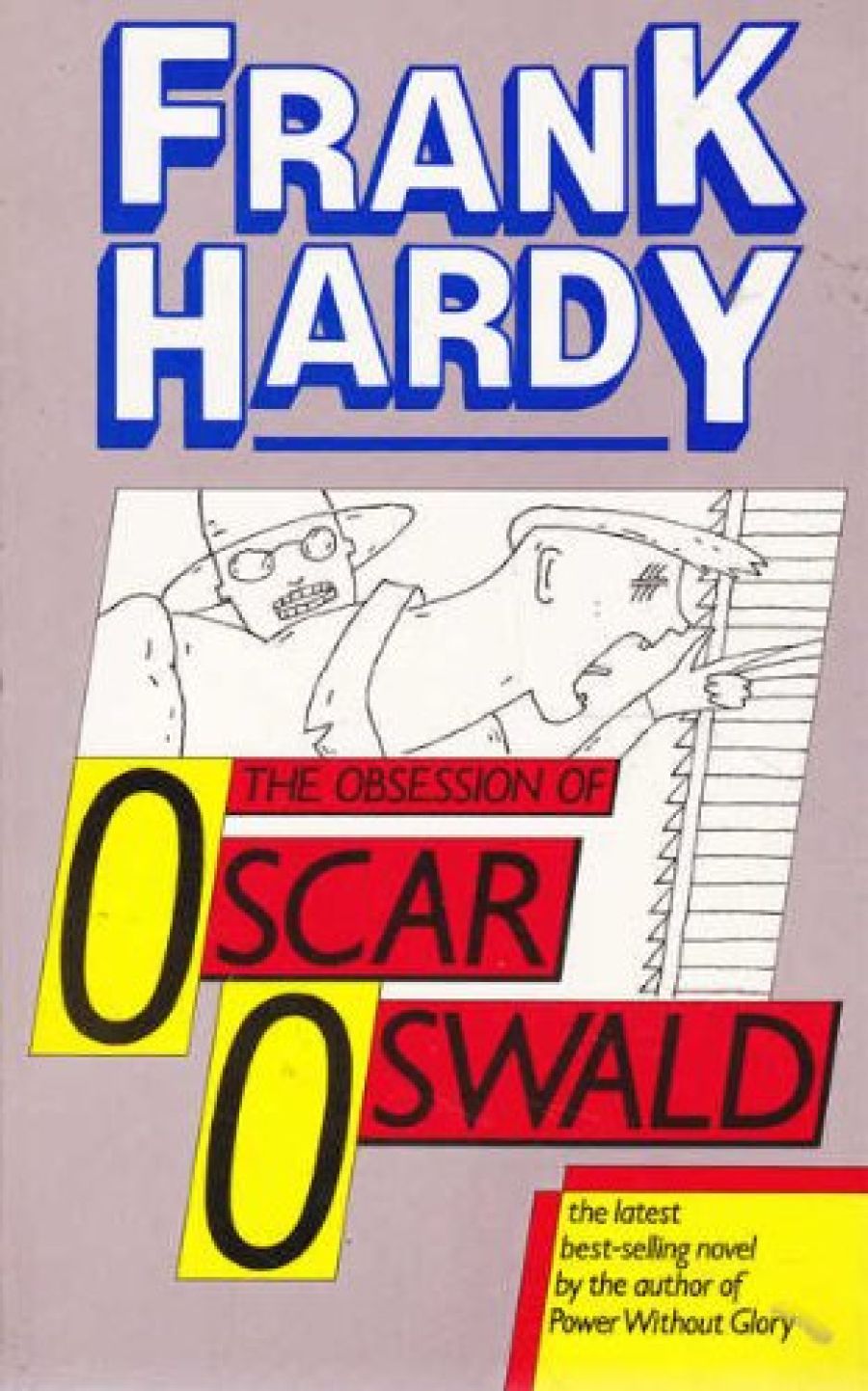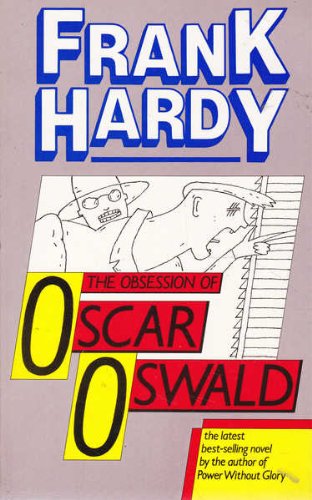
- Free Article: No
- Contents Category: History
- Review Article: Yes
- Article Title: In the Future
- Online Only: No
- Custom Highlight Text:
In Carlton the graffiti’s already been around for months: ‘Oscar Oswald is right ... 1984’. Now even if you’ve never heard of Oscar Oswald you’ll know one thing about him and that is that he's not George Orwell ‘If Oscar Oswald is right in 1984,’ the graffiti might easily be saying, ‘then George Orwell must have had it all terribly wrong in 1949’.
- Book 1 Title: The Obsession of Oscar Oswald
- Book 1 Biblio: Pascoe Publishing, $5.95 pb, 214 pp
- Book 1 Cover Small (400 x 600):

- Book 1 Cover (800 x 1200):

Well, predictably enough, this issue forms one of the central concerns of Frank Hardy’s latest novel, The Obsession of Oscar Oswald. Oswald is presented as Australia's answer to Winston Smith, and he’s everything Winston was not. While Winston had to struggle relentlessly to retain his sanity, Oscar Oswald blatantly displays all the symptoms of a paranoid schizophrenic; whereas Smith was constantly finding himself caught in labyrinths of doubt and confusion, Oswald never once has to question the integrity of his beliefs, and while it was always inevitable (we felt) that Winston Smith would betray, Oswald (we know) will be faithful to the end.
An apparently inconsequential little man, Oswald lives out this already infamous year in suburban Melbourne, quietly pondering the plight of the poor. Oswald’s Melbourne is surprisingly similar to the Melbourne of today – a Melbourne where comfortable houses lie vacant while the homeless seek shelter in Brotherhood bins, a Melbourne where big business thrives on the insolvency of the masses. ‘Indebtedness’, concludes Oswald ‘is the trick by which the rich exploit the poor and the rich nations exploit the poor nations, and the greates indebtedness trick of all is the Hire Purchase system’.
From the dubious sanctuary of his own, largely hire purchased living room, Oscar Oswald launches a one-man offensive against repossession agents and the capitalist system which propagates them. His sole aim is to free the common man from the tyranny of Blue Paper Men everywhere. In desperation he resorts to violence; the finale is suitably macabre.
Perhaps the best-developed character in the novel is the narrator and reader’s touchstone, Brad Livingston. Through an artistic obsession with an eccentric neighbour the apathetic Livingston discovers, to his surprise, that he has the capacity for devotion, and thus also for true and fruitful committment.
Yet for all that it is undoubtedly well intentioned, The Obsession of Oscar Oswald is a strangely naive novel. It’s satire has little bite and its suspense lacks real chill, while Brad Livingston’s pedantic insistence on annotating Australiana is likely to irritate even the most un-Australian of readers. Personally I think that Hardy has done himself a disservice by appearing to demand that his readers chose between Orwell’s scenario and his own. Thematically the two are certainly alternatives, but they need not cancel one another out. In essence both Oscar Oswald and 1984 are fantasies and neither is concerned wholly, or even predominantly, with predicting the future.


Comments powered by CComment